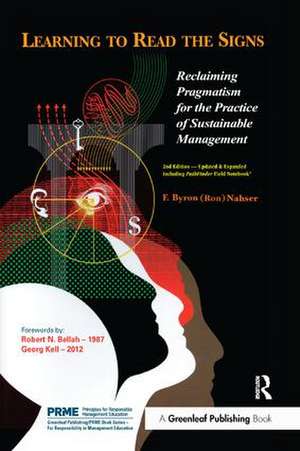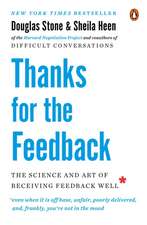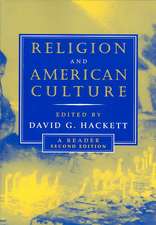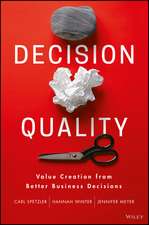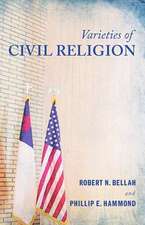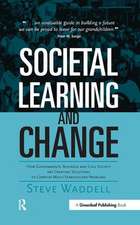Learning to Read the Signs: Reclaiming Pragmatism for the Practice of Sustainable Management: The Principles for Responsible Management Education Series
Autor F. Byron (Ron) Nahseren Limba Engleză Paperback – 31 aug 2013
It's not what we know, but how we learn. This is the key that Learning to Read the Signs uses in order to evaluate and apply ideas and facts to one's organization life. The book asks the reader to go back to and reclaim pragmatism: an activity of thought involving four parts: Investigation, Hypothesis, Action, and Testing. Pragmatism is a method of interpretation or inquiry which offers to the thoughtful business practitioner a way to better understand the reality in which we operate, to think critically and creatively, and for business people to think together to make the best use of all our perspectives and talents. Questions raised in this book include: What are the signs telling us? Where are we headed and why? Why are things going the way they are? What is our purpose?
Examples abound of companies and organizations that have failed to "read the signs": the automobile and the financial services industries are obvious examples. Doing business successfully in the 21st century means becoming aware of the filters that modify and limit business vision in our culture. Without this awareness, many businesses will continue to fall into short-term reactive thinking. In a world facing unprecedented social, environmental, and economic challenges, learning to read the signs is a business imperative. This is not a how-to book in the sense that it provides ten easy answers to everyday business problems. The help it gives is much more profound. This book outlines a mode of inquiry that can be used to solve cognitive as well as ethical questions. Drawing on the deepest resources of philosophical pragmatism, Nahser shows us that often we do not even know the right question to ask, that we must start by trusting our doubts and seeing where they lead, so that we can even begin to ask the right questions. He brings philosophy down to earth by showing that a practical philosophy can call into question our outworn assumptions, open up new lines in inquiry, and lead to conclusions we never imagined at the beginning of the process – conclusions not just about what to do next, but about our larger purposes, those frameworks that give us meaning and direction. In this long-overdue and radical update to his seminal book, Ron Nahser turns his attention to how pragmatism can be can be practiced by the management of business, government, and non-profit organizations to create both success and a better world for all.
| Toate formatele și edițiile | Preț | Express |
|---|---|---|
| Paperback (1) | 319.43 lei 6-8 săpt. | |
| Taylor & Francis – 31 aug 2013 | 319.43 lei 6-8 săpt. | |
| Hardback (1) | 625.83 lei 6-8 săpt. | |
| Taylor & Francis – 31 aug 2013 | 625.83 lei 6-8 săpt. |
Din seria The Principles for Responsible Management Education Series
- 8%
 Preț: 530.50 lei
Preț: 530.50 lei -
 Preț: 272.72 lei
Preț: 272.72 lei -
 Preț: 279.62 lei
Preț: 279.62 lei -
 Preț: 390.25 lei
Preț: 390.25 lei -
 Preț: 327.48 lei
Preț: 327.48 lei -
 Preț: 308.62 lei
Preț: 308.62 lei -
 Preț: 385.74 lei
Preț: 385.74 lei -
 Preț: 386.69 lei
Preț: 386.69 lei -
 Preț: 378.34 lei
Preț: 378.34 lei -
 Preț: 369.22 lei
Preț: 369.22 lei -
 Preț: 378.34 lei
Preț: 378.34 lei - 12%
 Preț: 303.31 lei
Preț: 303.31 lei - 19%
 Preț: 267.02 lei
Preț: 267.02 lei -
 Preț: 442.89 lei
Preț: 442.89 lei -
 Preț: 379.09 lei
Preț: 379.09 lei -
 Preț: 344.90 lei
Preț: 344.90 lei -
 Preț: 425.59 lei
Preț: 425.59 lei -
 Preț: 408.54 lei
Preț: 408.54 lei - 27%
 Preț: 400.74 lei
Preț: 400.74 lei -
 Preț: 355.05 lei
Preț: 355.05 lei - 15%
 Preț: 335.02 lei
Preț: 335.02 lei -
 Preț: 364.94 lei
Preț: 364.94 lei - 15%
 Preț: 478.89 lei
Preț: 478.89 lei -
 Preț: 288.68 lei
Preț: 288.68 lei -
 Preț: 496.01 lei
Preț: 496.01 lei - 18%
 Preț: 1001.87 lei
Preț: 1001.87 lei - 9%
 Preț: 935.22 lei
Preț: 935.22 lei
Preț: 319.43 lei
Nou
Puncte Express: 479
Preț estimativ în valută:
61.13€ • 66.38$ • 51.35£
61.13€ • 66.38$ • 51.35£
Carte tipărită la comandă
Livrare economică 22 aprilie-06 mai
Preluare comenzi: 021 569.72.76
Specificații
ISBN-13: 9781906093792
ISBN-10: 1906093792
Pagini: 240
Dimensiuni: 156 x 234 x 15 mm
Greutate: 0.36 kg
Ediția:Updated, Expand
Editura: Taylor & Francis
Colecția Routledge
Seria The Principles for Responsible Management Education Series
Locul publicării:Oxford, United Kingdom
ISBN-10: 1906093792
Pagini: 240
Dimensiuni: 156 x 234 x 15 mm
Greutate: 0.36 kg
Ediția:Updated, Expand
Editura: Taylor & Francis
Colecția Routledge
Seria The Principles for Responsible Management Education Series
Locul publicării:Oxford, United Kingdom
Public țintă
Postgraduate and Professional Practice & DevelopmentCuprins
Foreword to the Second Edition by Georg Kell Foreword to the First Edition by Robert N. BellahPreface to the Second Edition: Nearly a generation laterPreface to the First EditionAcknowledgments Part I: Begin1. Why reclaim pragmatism for organizations? Part II: Explore2. The filtered view from the corporate tower3. The nature and purpose of business: Is it time to change our view?4. How our filters came to be Part III: Interpret5. Pragmatism: A community of inquirers6. Extending Peirce beyond science: Diverse voices and corporate change Part IV: Decide – Hypothesize7. Pragmatism from theory to practice: A PathFinder for organizations8. Pragmatism in business: Lessons learned Part V: Act: The path ahead9. The creative community10. The still, small voice within Epilogue: The story of the UN-supported Principles for Responsible Management Education by Jonas Haertle Appendix I: UN PRME 3rd Global Forum Participant’s GuideAppendix II: UN models and Pragmatic Inquiry ModelAppendix III: The PathFinder Lab Journal – Field Notebook Selected bibliographyNotesAbout the authorIndex
Descriere
In this new edition of his seminal text, Nahser reclaims the profound philosophy of pragmatism and considers how it can be applied to the business world. He outlines a mode of inquiry that can be used to solve cognitive as well as ethical questions, to result in corporate success and a better world.
